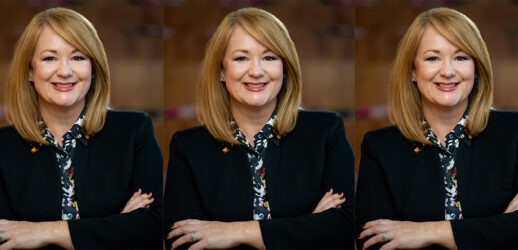As legendary mythologist Joseph Campbell, spelled out in his description of the time-tested storytelling tool, “The Hero’s Journey,” a crisis calls on ordinary people to do extraordinary things. The disruption caused by the pandemic and subsequent Great Resignation in the events world is no exception. The urgent call to restaff hotels and events teams and engage discriminating audiences will include many unimaginable trials, learning new skills and, ultimately, a reinvention of ourselves and the industry. For tips on how to embark on this epic journey, we turned to some mentors to point the way forward.
Baby Steps

“We can’t do business the way we did before,” said Elliott Ferguson, president and CEO of Destination DC (Smart Meetings 2021 Catalyst Award winner). “The needs of the customer have changed.”
Ferguson, who serves on the boards of directors for both the U.S. Travel Association and The Downtown DC Business Improvement District, has seen that associations are getting 30% or more attrition and it is more difficult to have in-person, one-on-one meetings when many are working from their kitchen in the suburbs and some from second homes in the Caribbean.
Even though Fear of Missing Out is driving demand for in-person events, some travel budgets have been cut because the C-suite thinks Zoom meetings can accomplish everything. But Ferguson is optimistic because the result is not the same. “Sooner or later, when Coke finds out Pepsi is meeting in person and getting the benefits of young people interacting with more mature coworkers, Coke [and all the other competitive companies] will demand a return to a physical location,” he said.
Watch More: The Great Contemplation: Lessons in Leadership for Empowering Your Events Team
The Partner Model

“We can’t take attendance for granted anymore,” agreed Brad Dean, CEO of Discover Puerto Rico (Smart Meetings 2021 Catalyst Award winner), citing one of the hurdles facing meeting professionals looking to resume in-person events. In the pre-Covid days, meeting organizers could often estimate attendance based on the previous year’s behavior. Today, to coax attendees out of their homes, event organizers will have to give them a reason to get on a plane. Dean suggested a co-management arrangement with the venue and the destination. Regular check-ins to keep everyone updated on attendance expectations can help soften the blow of attrition. “The days of locking in room nights and moving on are gone. It will require a different level of ownership,” he said.
Dean added that partnering with a destination to inject local culture in every aspect of the event from site inspection to keynote and closing ceremony is the fast track to helping attendees see the affair as a must-attend in-person event. The group of islands promotes “live—and meet—Boricua” as a way to share the unique local flavors and culture with visitors.
New Skills

Technology should be a tool, not a driver, said David Peckinpaugh, president and CEO of Maritz Holdings (Smart Meetings March 2022 featured leader), reflecting on how some planners are incorporating some of the new virtual streaming skills they learned over the pandemic because they can, rather than because of the results it will drive. “We tend to outsource innovation to tech companies,” he explained, “but tech should be an enabler. Let’s get back to designing with intent.”
Listen More: Play Lessons from Leaders with David Peckinpaugh on demand
In his perspective, artificial intelligence and blockchain will have an application, but they will serve as adjuncts and enhancements. “We have to take the pieces that work and then do what we do so well, plan experiences.”
Peckinpaugh acknowledged it won’t be easy. “Change is exhausting, and our organizations are suffering from burnout, but we can’t afford the status quo.”
The Rebirth of Staffing
Hotels and destinations from Puerto Rico to Washington, D.C., are reporting that people are back working again, but the dynamic has changed after the period of loss and reflection in 2020 and 2021. Dean shared that while the island is ahead of the national average for staffing due in part to the return of those who were displaced after Hurricane Maria in 2017, a lot of businesses still aren’t fully staffed. “That underscores the importance of attracting more diverse employees,” he said.
The hospitality industry is built on being welcoming and inclusive and Dean stressed the importance of telling that story during recruiting to replace the brain drain that happened with diverse faces bringing fresh ideas. “We are where your values meet your vacation,” he said, a message he believes resonates with potential visitors and employees.
“The pandemic gave people a chance to rethink how they want to spend their lives.”
“We need to look beyond university hospitality programs because even if we retain everyone majoring in hospitality, it will still be only a fraction of the workers we need,” Dean said. He looks at historically black colleges and universities, hotels, sales and customer service employees and even gamers (they adapt quickly to new event technology) to find aspiring servant-leaders by considering what they have accomplished outside the classroom in the work and social sphere. “We have to be mindful that what comes on the college degree doesn’t guarantee success.” The search for nontraditional candidates may include recruiting earlier at high school career fairs so the next generation knows the expanse of the opportunity in hospitality.
“We have to talk about recruitment and retention together,” Dean warned. The younger generation wants to have an impact and contribute in a meaningful way. “We need to harness that.”
Ferguson observed that while a lot of people moved on to other industries that offered more flexibility, that opened opportunities for younger job seekers. “The pandemic gave people a chance to rethink how they want to spend their lives,” he said. “If you are a meeting planner, it is in your blood. They may move on to different facets of planning, but they are finding ways to give back.”
To fill the seats of those who retired, Ferguson ventured that planners may need to advocate for allowing virtual seats at events and remote positions in the office to be successful.
“Once you create the opportunity, people raise their hands.”
Peckinpaugh advocated for playing on the strengths of the job when recruiting. “This is a fun industry because it is based on relationships,” he said. That appeal hasn’t changed because of the pandemic and risk has always been part of the meetings equation.
The trick, he said, will be integrating the new ideas with the established ways of doing things. Maritz has hired over 1,000 people over the last 12 months. “We have to create a career path as a company and an industry,” he said. That will include some marginally different skills, including event technology and data analytics and they must be married with the core design functions. Peckinpaugh has found that people are able and willing to step up to these new challenges. “Once you create the opportunity, people raise their hands,” he said.
Peckinpaugh sees the search for new industry leadership as an extension of the staffing integration work. “If you identify someone cut out to be a leader, you have to provide the framework and coaching to help them reach their potential,” he said. “Industrywide, there is a huge gap and a big opportunity.”
The Gift of Perspective
Many destination marketing organizations crystallized around a role that had always been part of the picture but was front and center when travelers left the picture. Convention and Visitors Bureaus ultimately serve their local communities. “Puerto Rico is using hospitality and meetings as a transformative tool for the community,” said Dean. “That requires us to be more thoughtful about things such as sustainability, diversity and social justice in addition to the benefits of providing opportunities for full-time employment and the gig economy.”
Read More: Destination Profs on Getting Back to an Eventful Future

In Central Florida, Casandra Matej, president and CEO of Visit Orlando (2022 Smart Women in Meetings Award winner), took away some powerful lessons from the crisis about the importance of embracing all parts of the market and keeping everyone healthy. Youth sports was a key market during the pandemic when corporations were hunkered down. In addition to the needed business from volleyball and basketball tournaments, the gatherings served as an example for people around the country figuring out how to reopen again. “That is leadership,” said Matej.
A formalized partnership with Orlando Health gives meeting planners 24-hour virtual health care access. A new clinic taking shape in Orange County Convention Center will offer drop-in tests and treatment. Enhanced 360 virtual tours of hotels give planners visibility into potential spaces no matter where they are located. “That can also help when companies are budget-conscious,” Matej pointed out.
“As an industry, we had an opportunity to solidify our partnerships with the local community, Orlando Economic Partnership and Orange County,” Matej said. She serves on the local emergency task force and gives the industry a place at the proverbial table. “The result is that we are all talking with one voice,” she said.
“We are constantly reinventing and looking at new innovations to service clients. We have Disney and Universal, which are always reinvesting in themselves, 450 hotels 130,000 hotel rooms and are adding more, including a Fairmont in 2025,” she said with a smile.





